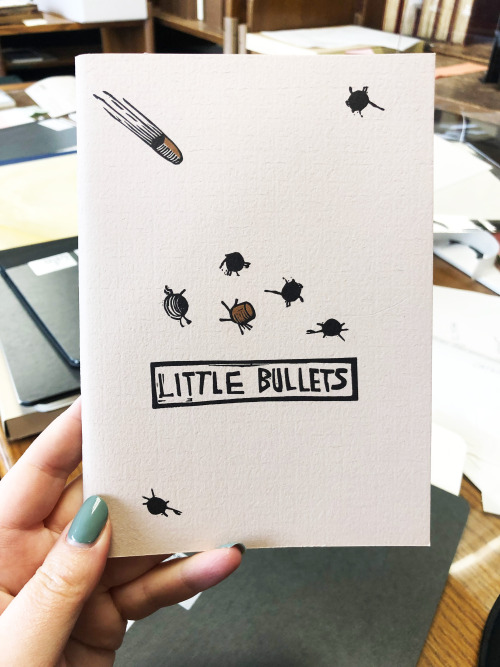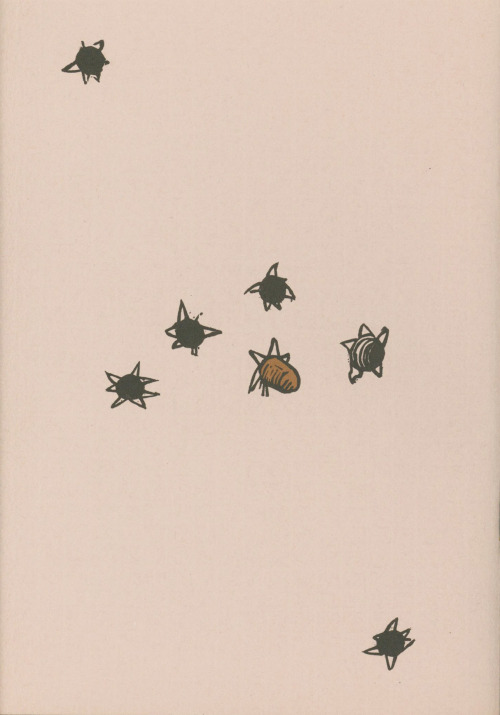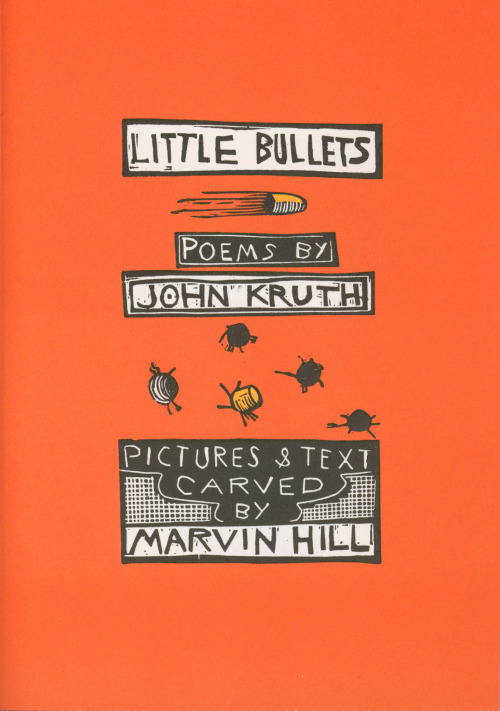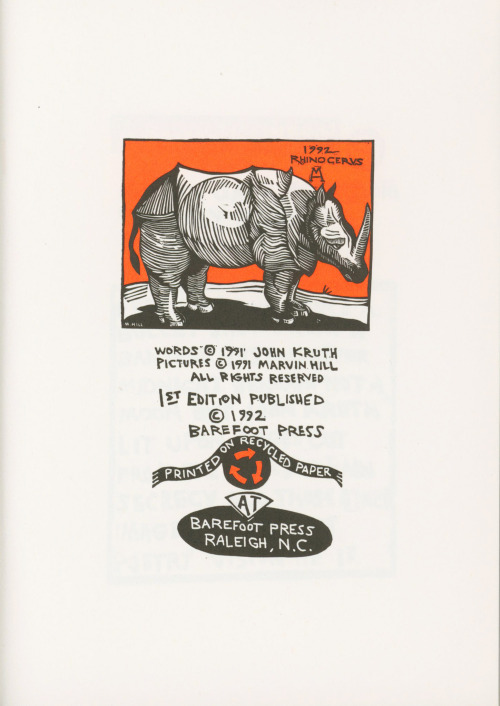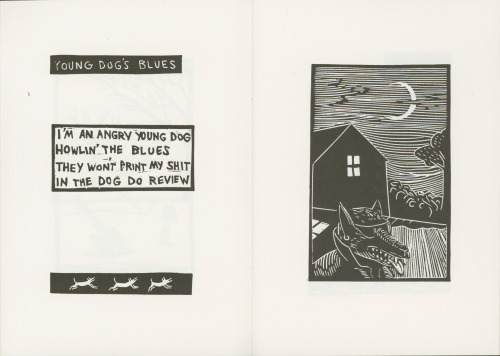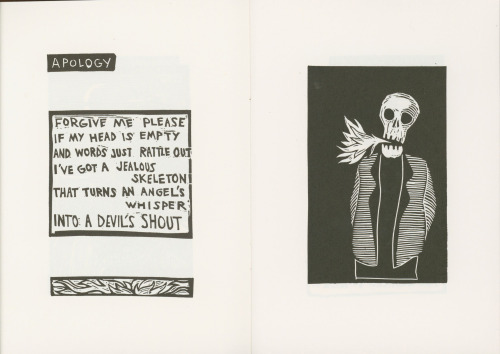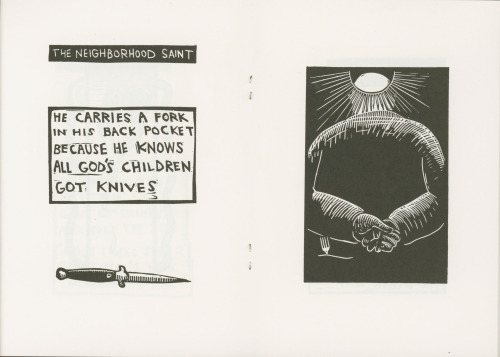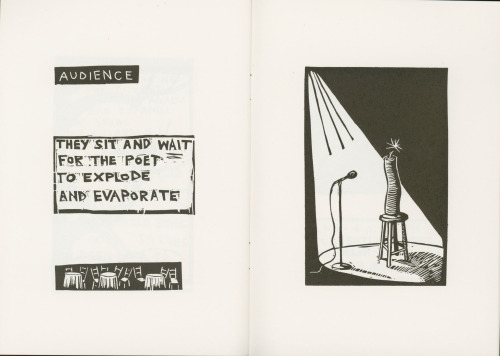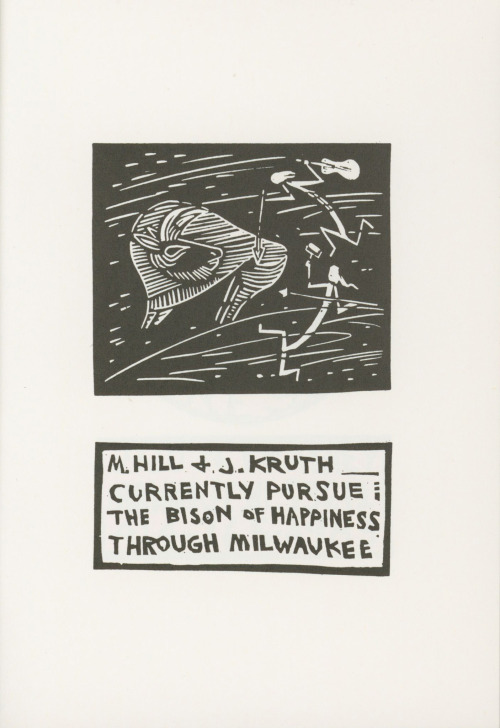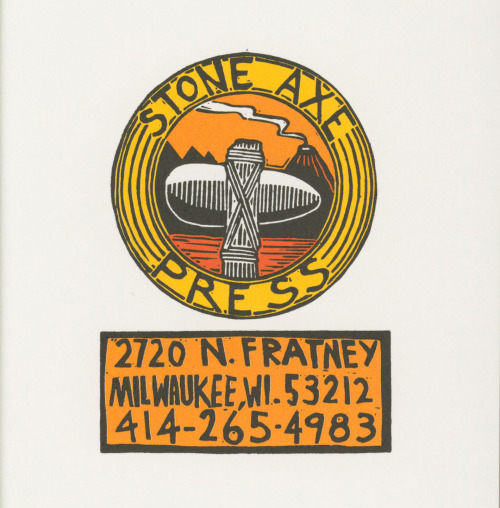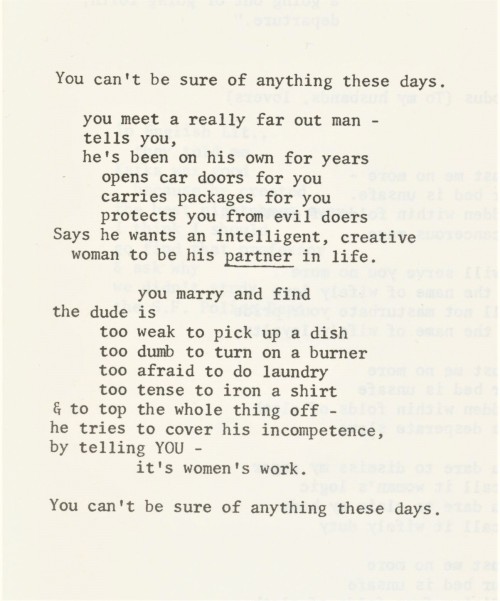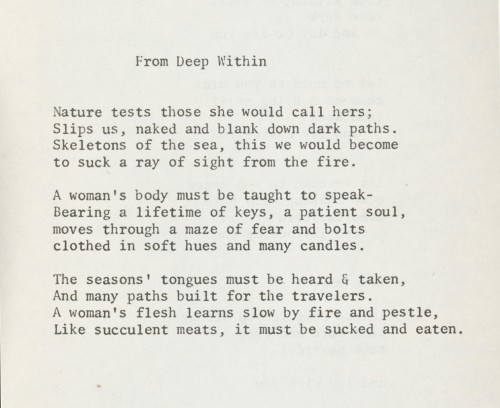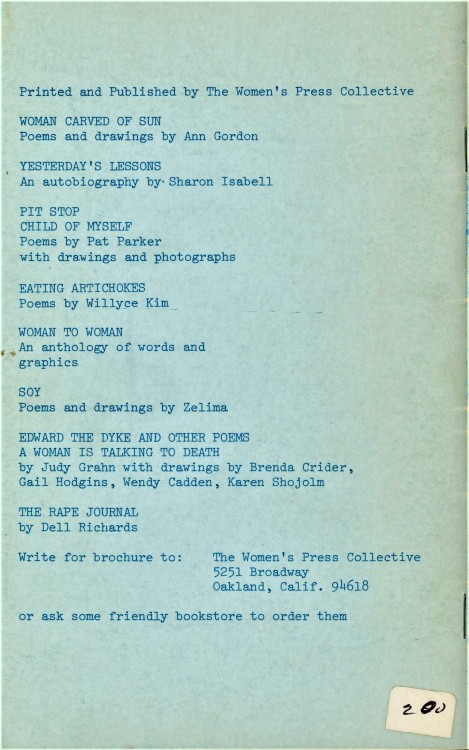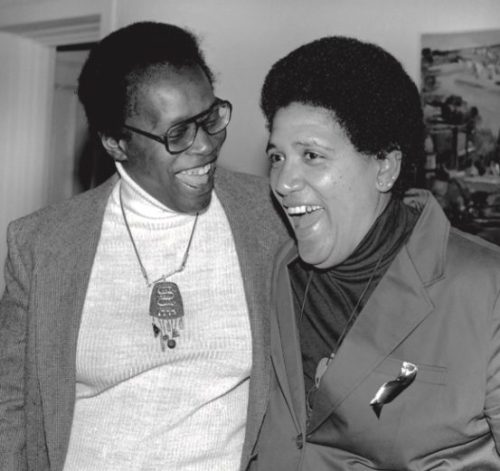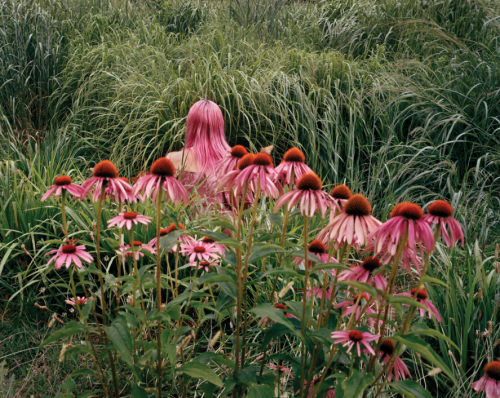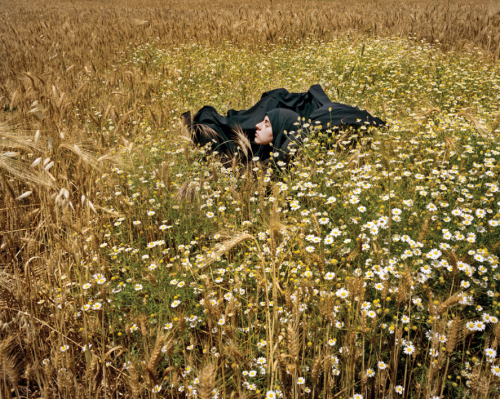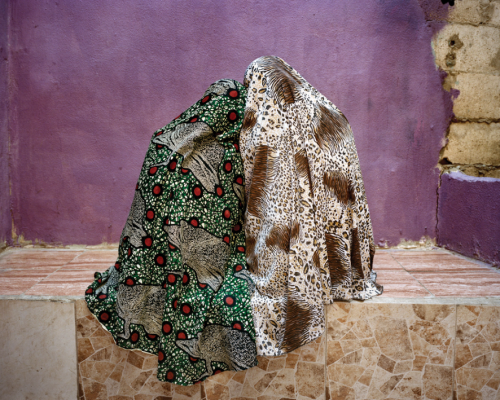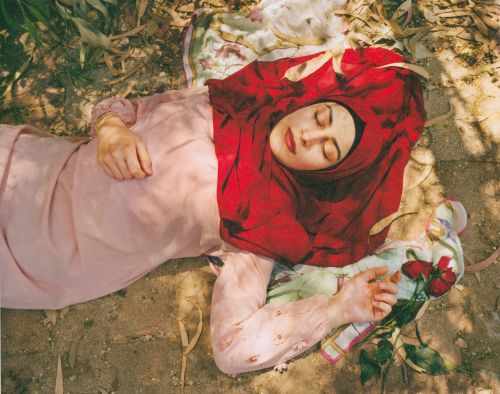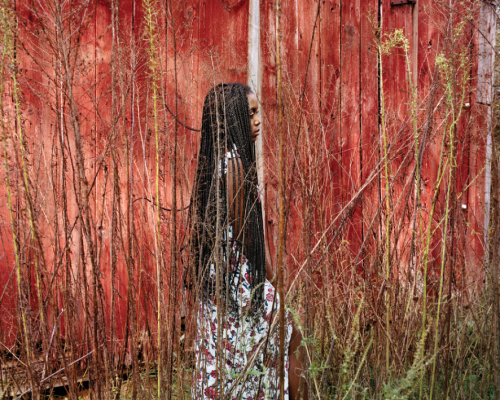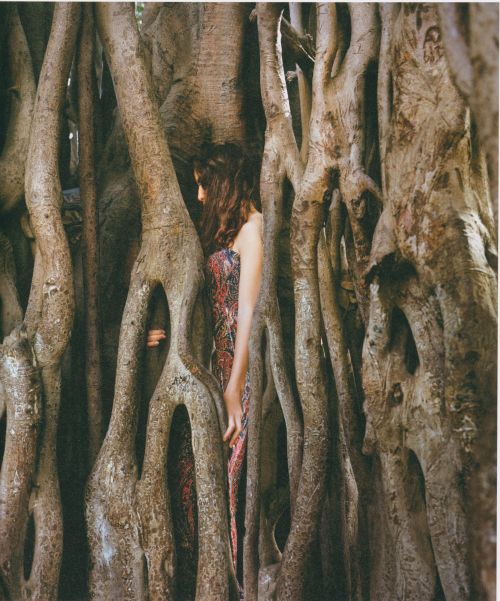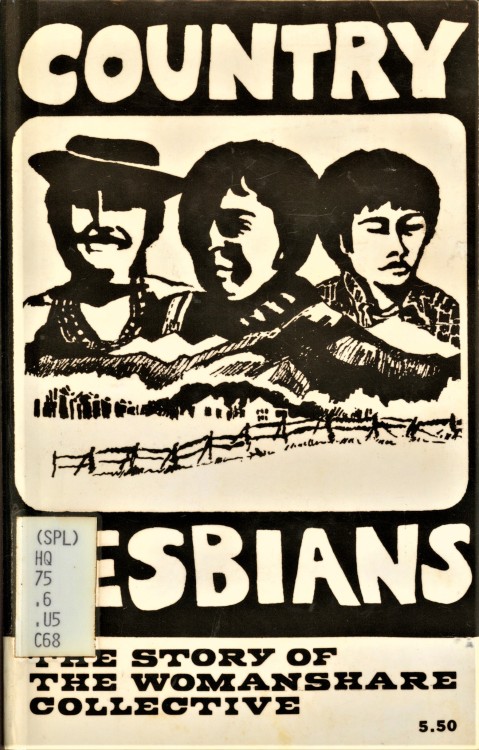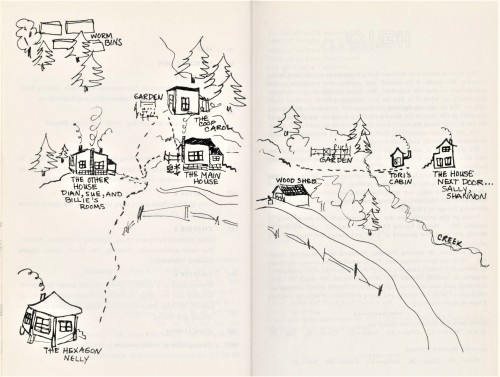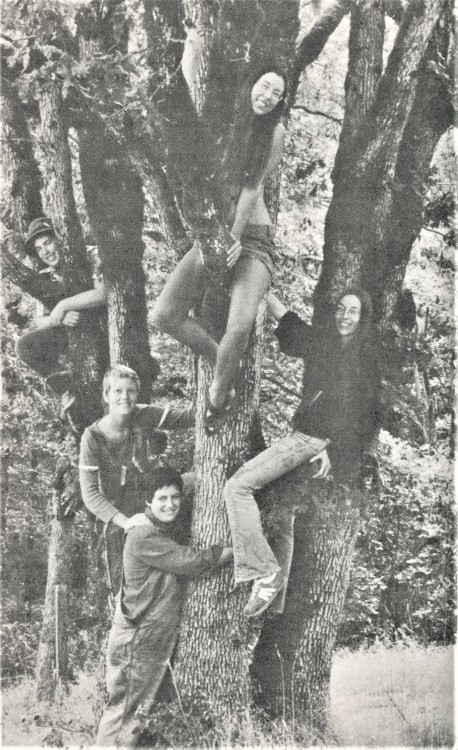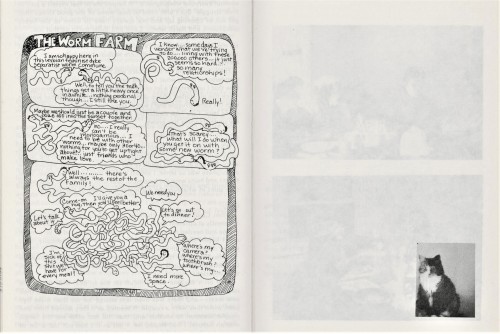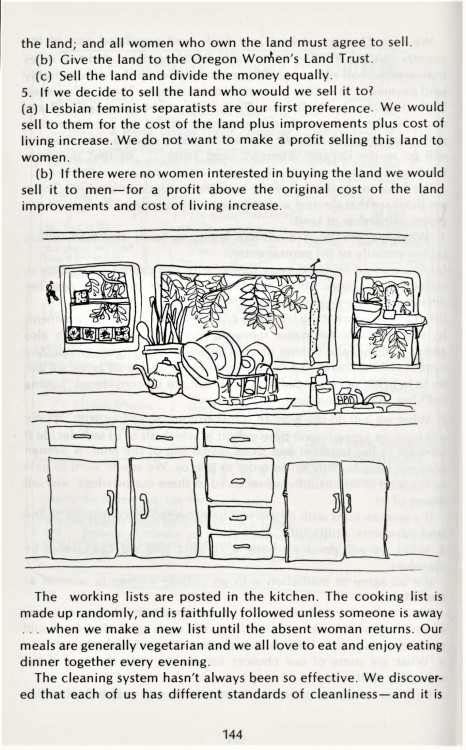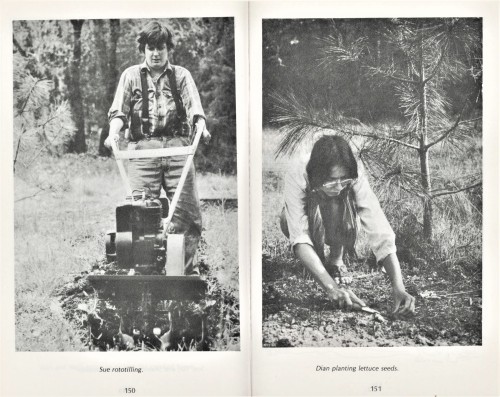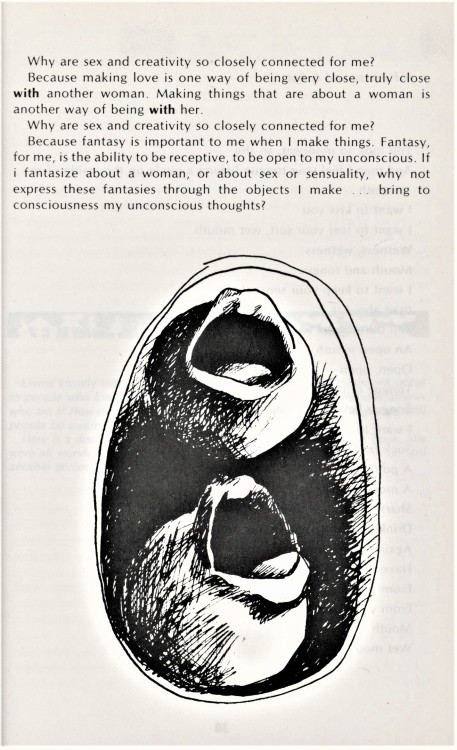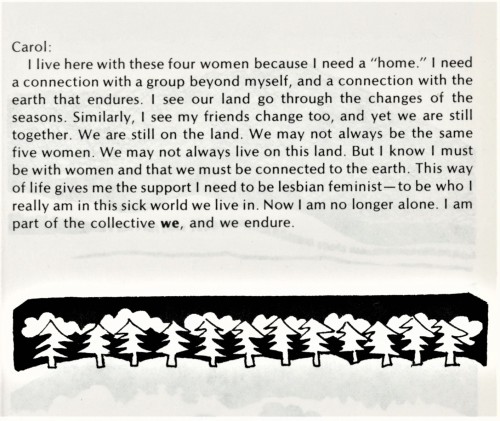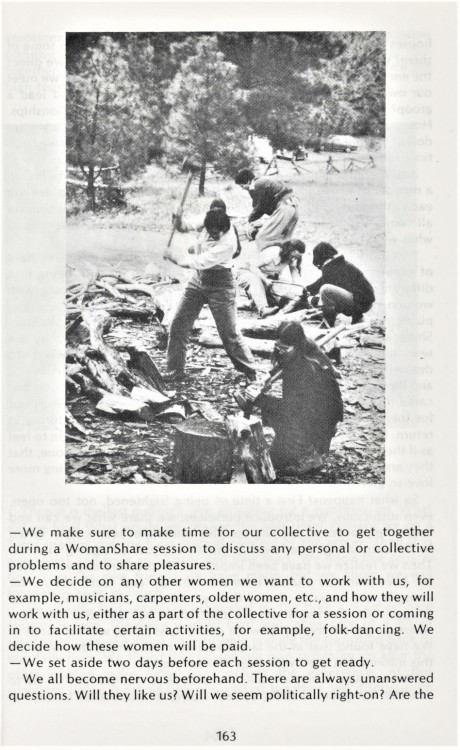#staff pick of the week
Staff Pick of the Week
For my staff pick, I’ve chosen Little Bullets by talented musician, author, and music professor John Kruth. Kruth is the author of several books of poetry, as well as several other books, including biographies of Townes Van ZandtandRoy Orbison. A native of New York City, Kruth lived in Milwaukee from 1986-1996, partially because the Violent Femmes told him it would be more affordable to finish his album here.
This book features brief poems and accompanying illustrations that are all linocuts by artist Marvin Hill. Hill lived in Milwaukee and later in Johnson Creek, WI with his wife, Wendy, until his passing in 2003. Wendy carried on Hill’s legacy, continuing to print his works for many years—some are still available on their website. I found a nice piece about Hill and his work written by journalist Kevin Lynch.
What’s impressive to me is that all of the text for this book was done as linocuts! There are a lot of really nice details in the book, like how the bullet holes on the cover line up with the exit holes on the back. I love the bright orange used for the title page and again for the background of the linocut of a rhinoceros.
Little Bullets was published in 1992 by Barefoot Press, which remains a green printer in Raleigh, North Carolina, and apparently in association with Stone Axe Press of Milwaukee, WI, which was housed at 2720 N. Fratney St. in the Riverwest neighborhood. The penultimate page of the book has a linocut of two figures, one with a guitar and the other with a brayer, chasing a bison and says “M. Hill and J. Kruth currently pursue the bison of happiness through Milwaukee.”
I hope this book finds you pursuing your own bison of happiness.
- Alice, Special Collections Department Manager
Post link
Staff Pick of the Week
Child of Myself
Our collection preserves a second printing of American poet and activist Pat Parker’s first poetry book, Child of Myself, published in 1974 by the Women’s Press Collective.The illustrations for this printing were done by Brenda Crider, Wendy Cadden, Jerri Robertson, Karen Garrison, and “Helle.” Over the course of her life, Parker published five collections of poetry and was a champion in the fight for women’s and LGBT liberation.
Parker’s activism was extensive. Parker was the founder of the Black Women’s Revolutionary Council in 1980; an early supporter of groups like the Black Panther Party; and the executive director of the Oakland Feminist Women’s Health Center from 1978 to 1987—a revolutionary organization, offering abortion healthcare to women in California, which inspired the formation of the still active, Chico Feminist Women’s Health Center (CFWHC). She also aided in the formation of the Women’s Press Collective, the publisher of her first two poetry books. The Collective was established by photographer, printer, and publisher,Wendy Cadden, and her partner Judy Grahn, an Air Force officer turned poet and activist after being discharged for being openly gay. Producing books, poems, and graphics, the press strove to promote work by lesbians disenfranchised by race or class.
InChild of Myself, Parker challenges the socially accepted power dynamics of heterosexual relationships through critiques on women’s prescribed roles as housekeeper and caretaker. When reading Parker’s stream-of-consciousness poetics, we have to step back and appreciate the bravery of these Black, LGBT, women feminists, who endured in the face of multiple systems of oppression. Parker and friends’ fight for women’s liberation was even acknowledged by Black Panther Party Leader, Huey P. Newton, in a 1970 interview:
…we say that we recognize the women’s right to be free. We have not said much about the homosexual at all, but we must relate to the homosexual movement because it is a real thing. And I know through reading, and through my life experience and observations that homosexuals are not given freedom and liberty by anyone in the society. They might be the most oppressed people in the society.
Child of Myself was originally published in 1972 by Shameless Hussy Press, founded byAlta Gerrey in Oakland in 1969—the first feminist press in the United States! The release of this first poetry book was just the beginning of Parker’s incredible career as a champion for LGBT rights, coming out as lesbian after the release of her second collection, Pit Stop, published by Women’s Press Collective in 1973, and again in 1975. Parker’s third poetry book, Womanslaughter, published in 1978 by American feminist publishing house, the Diana Press, revolves around the issue of femicide and the trauma of domestic violence. Parker often spoke publicly about these issues, kicking off day three of the first National Conference of Third World Lesbians and Gays, on October 15th, 1979, in Washington, D.C., with a speech about her sister’s tragic death at the hands of her husband.
Due to the Diana Press’s closure in 1979, Parker’s fourth collection, Movement in Black, published by the press in 1978, went out of print until 1983, when the Crossing Press (now a part of Random House’sCrown Publishing Group) issued a facsimile edition of the collection. By 1987 the book was once again unavailable, until, shortly after Parker’s death in 1989, Firebrand Books published its first edition of the collection—this time, including a foreword by friend, poet, and fellow activist, Audre Lorde and an introduction by Judy Grahn. Ten years later, in 1999, Firebrand released An Expanded Edition of Movement In Black, which includes a new section of previously-unpublished work, an introduction by Cheryl Clarke, and “Celebrations, Remembrances, Tributes” by ten Black writers including Lorde,Angela Y. Davis,Pamela Sneed, and Barbara Smith (founder of Kitchen Table: Women of Color Press).
Parker’s fifth and final poetry collection, Jonestown & Other Madness, was originally published by Firebrand Books in 1985, then re-published in 1989, just before Parker’s death from breast cancer. If you click here, you can hear Parker read the title poem from the book. Parker’s legacy will not soon be forgotten. In June 2019, Parker was one of the inaugural fifty American “pioneers, trailblazers, and heroes” inducted on the National LGBTQ Wall of Honor at the Stonewall National Monument (SNM) in New York City’s Stonewall Inn. In 1991, thePat Parker/Vito Russo Center Library, was founded to encourage and facilitate the reading and research of LGBT literature.
Viewother Staff Picks here!
–Isabelle, Special Collections Undergraduate Writing Intern
Author Portrait from the National Black Justice Coalition
Picture of Parker and Audre Lorde courtesy of Susan Fleischmann, 1981, with permission of Public Books.
If you or someone you know is suffering from domestic violence and looking for help, don’t hesitate to reach out to the free, 24/7,hotline through text, chat, or call at 800-799-7233.
Post link
Staff Pick of the Week
I’m highlightingRania Matar’s latest photography book,She, published in October of 2021 by the New Mexico-based non-profit publisher Radius Books for this round of staff picks. Radius has donated over 75,000 of their fine art and photography books to libraries, schools, and art programs since their founding in 2007 and earmarks a portion of each publication for donation to underfunded libraries and arts programs.
Rania Matar was born in Lebanon in 1964 and relocated to the United States in 1984. Matar is an award-winning photographer, most recently a 2018 Guggenheim Fellow, whose work focuses on the daily lives of women and girls, informed by her cross-cultural experiences. The composition of the book, and the way it juxtaposes motifs across geographic space (the first two images above come on consecutive pages, image 8 & 9 are on facing pages) creates a sense of continuity of the feminine experience that transcends place. Sheis Matar’s fourth photography book. We also have Matar’s L’enfant-Femme(Damiani Editore, 2016) here in Special Collections – a potential future post. That work focuses on girls in their pre-teens and early teens in the United States and Lebanon, with geographical and cultural differences bridged by the common experience of growing up.
Click on the images for captions.
View our other posts on photography books.
ViewmoreStaff Picks of the Weekhere.
-Olivia, Special Collections Graduate Intern
Post link
Staff Pick of the Week
For my Staff Pick, I chose a book titled Country Lesbians: The Story of the WomanShare Collective written jointly by Sue Deevy,Nelly Kaufer,Dian Wagner,Carol Osmer-Newhouse, and Billie Miracle. This book was published in 1976, by WomanShare Books in Grants Pass, Oregon. It was typeset by MaryAnn, who is shown in the back of the book.
In the 1970s, there were many women, usually lesbians involved in the back-to-the-land feminist movement who separated from society in order to escape patriarchy, capitalism, and homophobia. This book is a unique primary source that gives the reader a first-hand look at their collective situated on 23 acres of land in southern Oregon. It includes poetry, transcriptions of conversations, illustrations, letters, journal entries, photographs, tutorials, and more.
TheWomanShare collective wrote this book together after two years of living on the land. It is a text that explores so many different topics, such as friendships, relationships, identity, family, money, power, politics, class, and how they dealt with these personally and collectively.
I chose this text because it feels like a portal into a time, place, and community that has striking differences and similarities to today’s age. At the time the book was published there was estimated to be around 150 of these communities, and today there are a few remaining with varying practices and ideals. Still, Country Lesbians remains one of the only primary sources of its kind on this frontier.
– Clare, Special Collections Undergraduate Assistant
Post link

